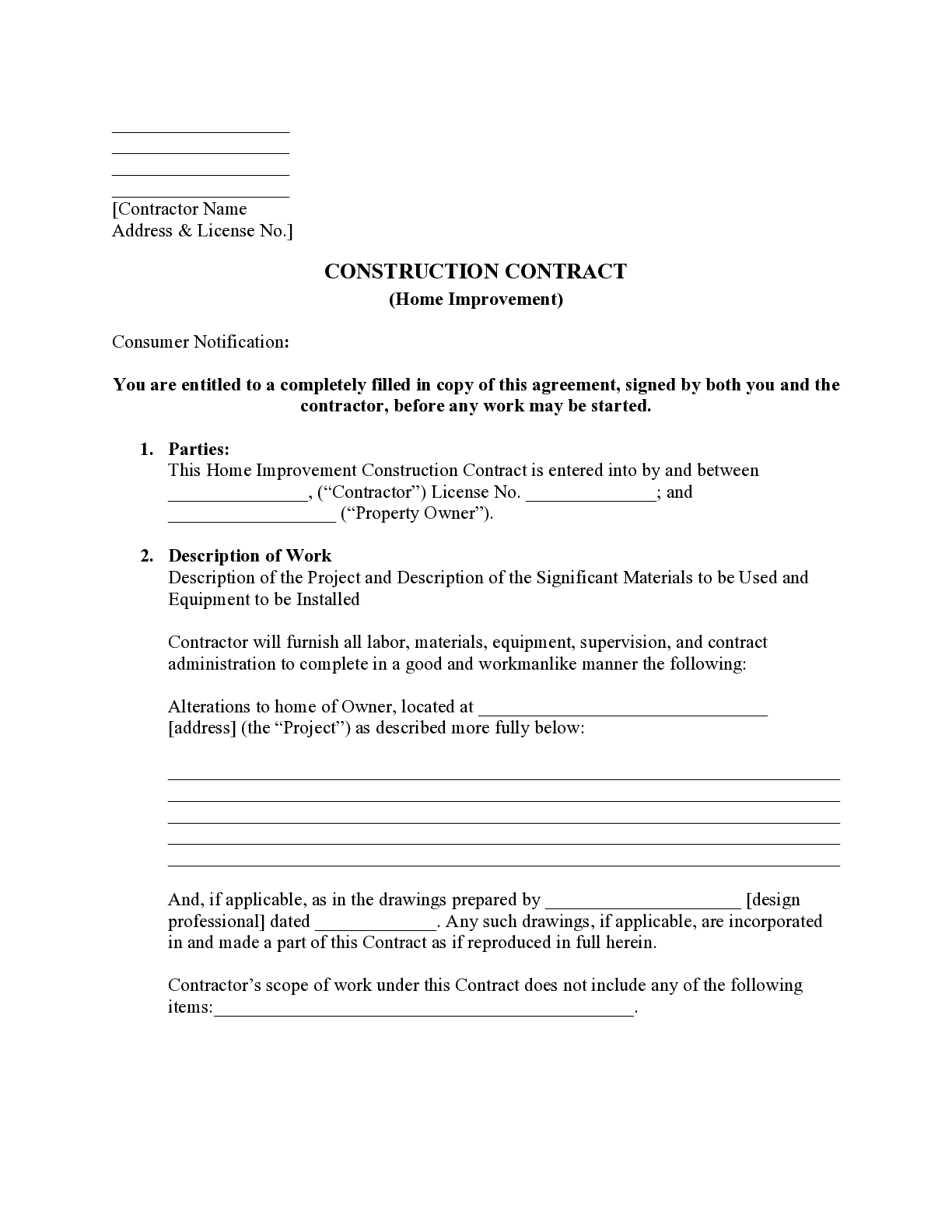California Construction Contracts
- Private Jobs
- Public Jobs
- Top Links

Lien Rights Can't Be Waived by Contract
California statutes specifically prohibit the ability to waive lien rights by contract.
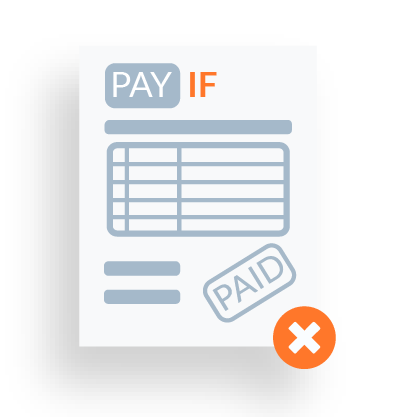
Pay-If-Paid Not Enforceable
Pay-if-paid clauses are not enforceable and are illegal in California, and unenforceable by statute and case law.
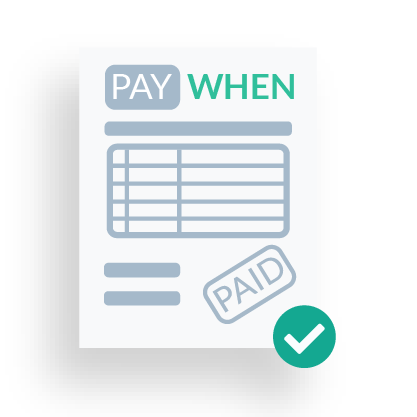
Pay-When-Paid is Enforceable
California only allows pay-when-paid clauses to set a reasonable time for payment, not to bar it completely.
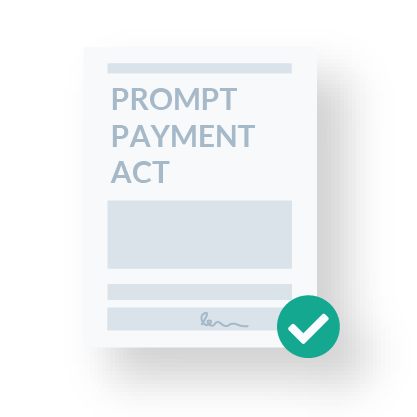
Payment Timing May Be Modified By Contract
The timing requirements on private construction projects under the prompt payment laws may be modified by the terms of the contract.

Retainage Mostly Unregulated
California has some laws about retainage, but the amount of retainage withheld is unregulated. Contractors can withhold any amount of retainage.

Pay-If-Paid Unenforceable
Pay-if-paid clauses are generally unenforceable on public projects in California.

Pay-When-Paid is Valid
Pay-when-paid clauses are probably enforceable as a timing mechanism on public projects, provided clear language is used. However, this doesn't preclude payment altogether, as payment must be made within a reasonable time after the sub completes work.

Payment Timing to Subs/Suppliers May Be Modified By Contract
Payments to prime contractors must be made according to the prompt pay requirements, but all other payments may be modified by contract.
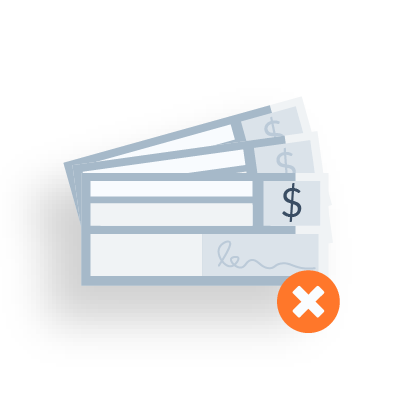
5% Maximum Retainage Withheld
Generally, the amount of retainage withheld on public projects is capped at 5%. However, a public entity may withhold more if the project is deemed substantially complex.
A construction contract outlines each party’s obligations, rights, and remedies on a project. But although the language in specific contract clauses is typically negotiable, California has certain rules that govern what the agreement must include — and what is prohibited.
Keep in mind that, while California’s rules for construction contract terms are written into state law, the courts determine how strictly those laws should be interpreted — and those interpretations can change.
On this page, you’ll find resources, legal information, and answers to frequently asked questions about California’s construction contract and payment terms requirements.
California construction contract provisions
While California generally allows construction parties to set the terms of their agreement, there are some laws that regulate specific types of contract provisions. Any contract clause that contradicts the law is invalid and unenforceable.
“No lien” clauses
California’s mechanics lien law specifically prohibits the use of “no-lien clauses,” including any contract term that attempts to “waive, affect, or impair any other claimant’s rights” to file a lien. Any clause that tries to reduce a claimant’s lien rights in the contract is void and unenforceable.
Contingent payment clauses
There are two types of contingent payment clauses: pay-if-paid and pay-when-paid.
California prohibits pay-if-paid clauses, which state that the hired party will not receive payment “unless and until” the hiring party is paid, these clauses are generally unenforceable on private and public projects.
Pay-when-paid clauses are allowed in California, as long as payment is provided within a “reasonable time” and the unpaid party isn’t barred from filing a claim.
Payment timing clauses
California’s prompt payment laws set specific deadlines for payments on both private and public construction projects. On private projects, parties may agree to different payment timing provisions. However, on public projects, payment to prime contractors must be made according to the prompt payment act, while all other payments may be modified by the subcontract terms.
Retainage clauses
California regulates retainage differently on private and public projects.
There is no cap on the amount of retainage that can be withheld on private residential or commercial projects. Therefore the amount that can be withheld will be governed by the terms of the contract.
On public projects, retainage is limited to no more than 5% of each progress payment, which may be reduced after 95% of the work is complete. The contract between the parties cannot be modified to withhold more unless the project is deemed “substantially complex” according to the public entity.
California construction contract requirements
California also has laws that establish contract requirements for specific types of projects — particularly those that involve a homeowner. Generally, all construction contracts and subcontracts in California must include the contractor’s license number issued by the CLSB (if required). In addition, to the license number, all prime contracts must include notice language regarding licensing requirements in 10pt bold font.
California home improvement contracts
California has a number of rules for home improvement agreements, including upfront deposits, payment terms, contract language, and consumer notices. For example, contracts must include specific paragraphs, and certain text the contract must be an exact font size and weight. The contractor may request a down payment, but that payment is limited to $1,000 or 10% of the contract price — whichever is less.
Other types of construction contract requirements
There are some additional requirements for specific types of contracts, such as service and repair contracts on residential projects under $750; such as certain language and payment terms required, and even actions the contractor is allowed to take. For example, the homeowner must have initiated contact with the contractor for a service and repair contract to be valid.


